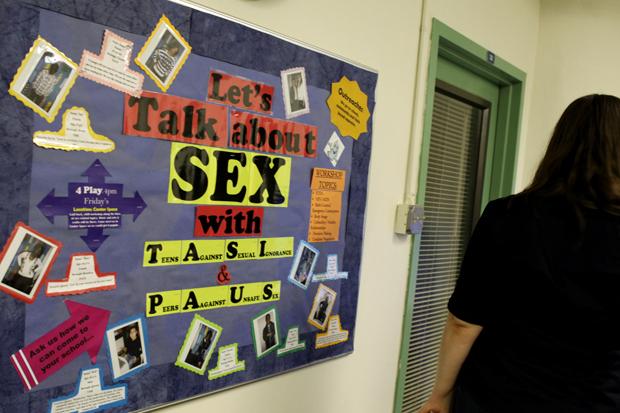The sex talk: How a European country might help Americans get a handle on it
Researcher Amy Schalet studied the different ways American families and Dutch families talk about sex with their teens. (Photo by Stephen Nessen for WNYC.)
Story from The Takeaway. Listen to the above audio for a complete report.
It’s an issue that vexes American parents: how and when to talk about sex with their teens.
In the Netherlands, however, it’s not so difficult. Sociologist Amy Schalet was born in the United States, but she grew up in the Netherlands. When she returned to the U.S., she was shocked to discover that teen pregnancy was still a huge issue and that parents struggled with and often avoided talking about sex with their teens.
So Schalet did what researchers do: she researched. And she released her research in a new book, “Not Under My Roof: Parents, Teens and the Culture of Sex,” which looks at Dutch attitudes and behaviors when compared to those in America. In her research, she discovered that while the Dutch take a much more permissive reaction toward teenagers in general, but especially with regards to sex, they actually can often exert more influence over their teens’ choices.
“I always try to say the key thing is not that you as parents need to permit sleepovers,” Schalet said. “What is very important is their sons and especially their daughters feel comfortable confiding in their parents and get guidance.”
Schalet said she discovered that there is a much tighter bond between Dutch teens and their parents then here in the United States. She attributes that, in part, to the way Dutch parents are having the sex talk with teens. Rather than focus on all the dangers of having sex, parents there focus more on the decision-making process.
“I’ve compared two countries — one where that’s not a radical idea, as long as young people are 16-17-18, ready, using contraception and in a positive relationship. That’s a really important part of it…it’s not everything goes, which many American audiences often think,” Schalet said.
Schalet’s research, which tried to account for racial and cultural differences between the two countries by comparing middle class whites that were moderately religious or secular in both countries, also found that the American approach may exacerbate the situation in other ways.
“I had so many American girls who said they’d kill me if they found out,” she said. “I think girls then, because they have to go it alone, because they don’t get their parents guidance, are less resilient in dealing with the media, less resilient in dealing with boys.”
As she presents her research to parents, Schalet says many Americans are surprised and interested that there may be another approach to dealing with sex and teens. She said that, instead of just talking about the dangers of sex, it focuses on how to help your teens know when they’re ready and what makes up a positive relationship.
“If you want to have an influence on your children,” she said, “you need to make sure they don’t feel too ashamed to discuss it with you when the time comes.
———————————————–
“The Takeaway” is a national morning news program, delivering the news and analysis you need to catch up, start your day, and prepare for what’s ahead. The show is a co-production of WNYC and PRI, in editorial collaboration with the BBC, The New York Times Radio, and WGBH.
